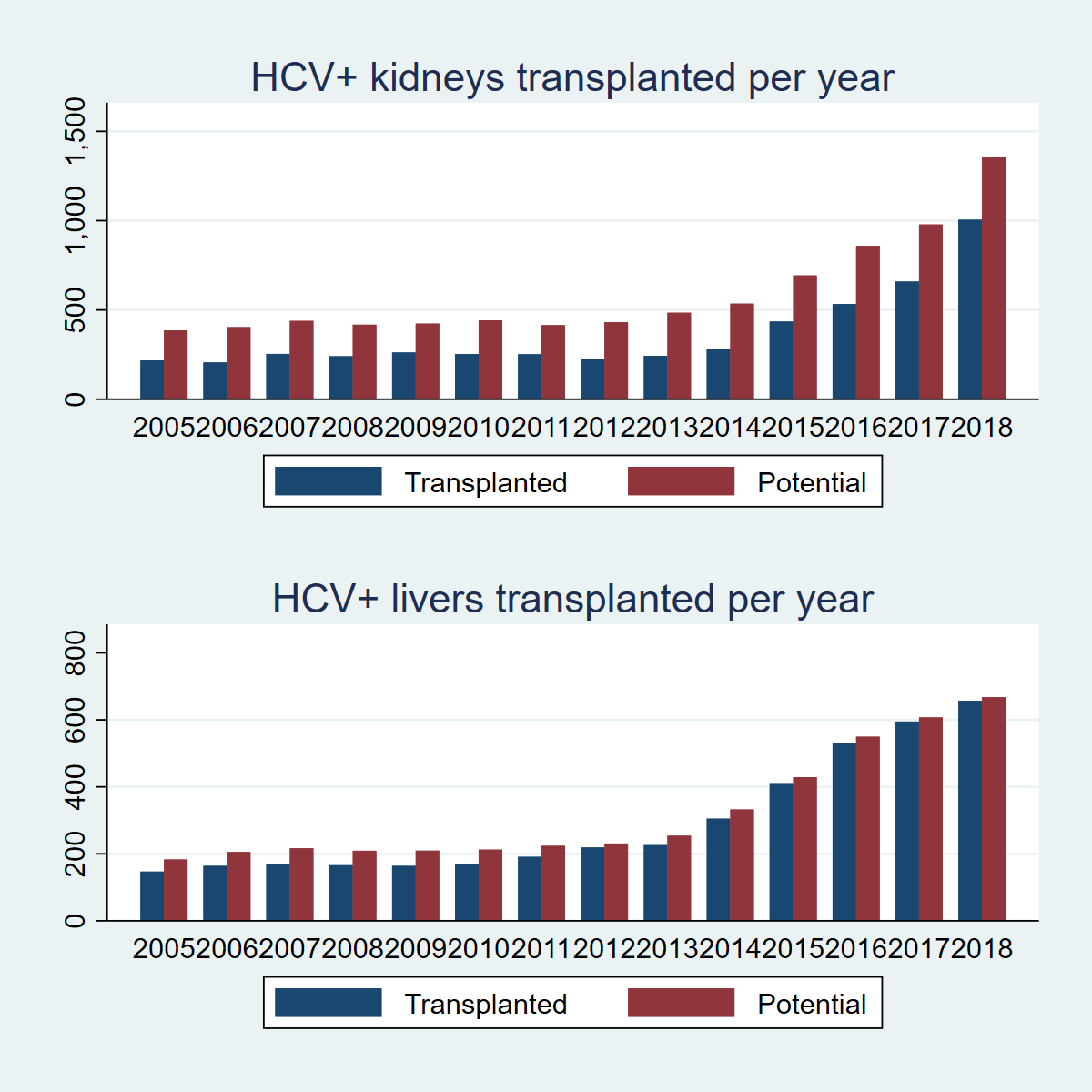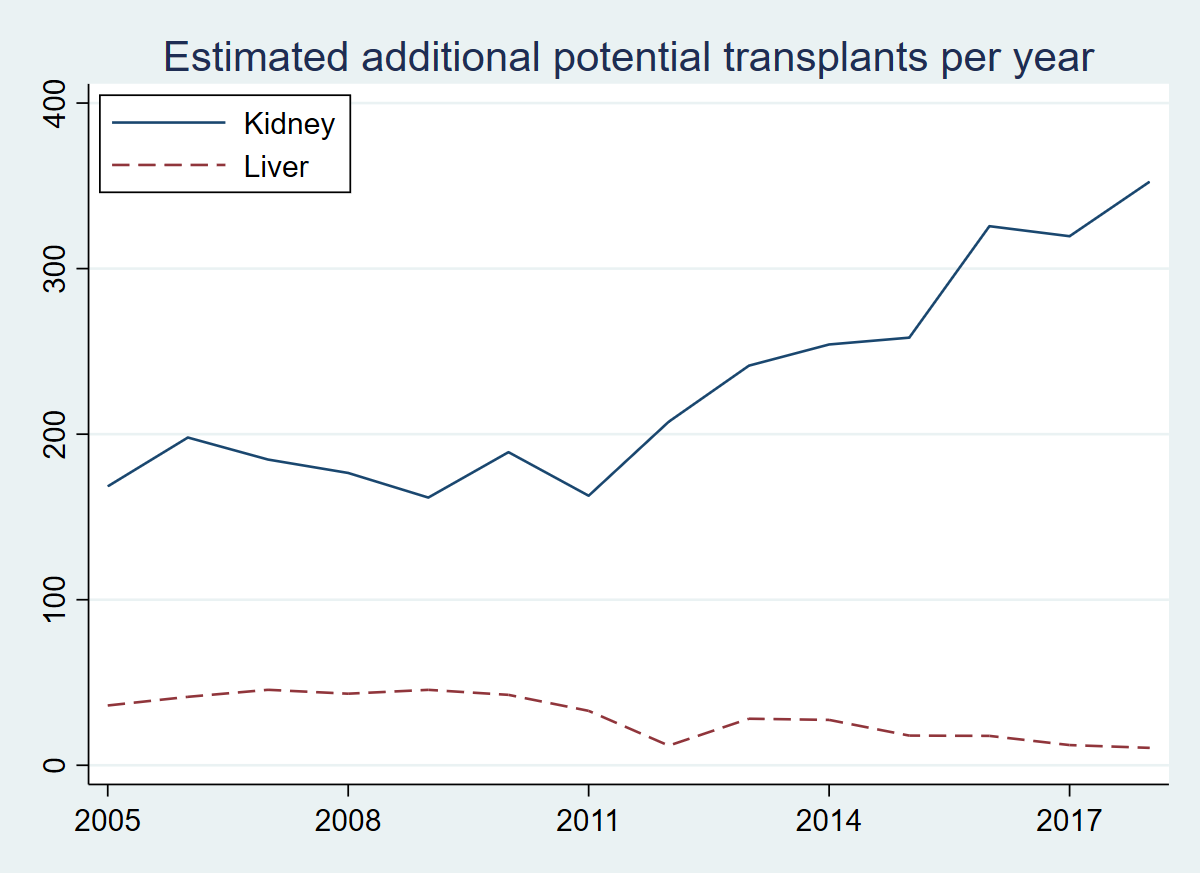Unrealized Potential Utilization of HCV+ Deceased-Donor Kidneys and Livers
A. Massie, C. Durand, N. Desai, W. El-Nahal, D. Segev
Johns Hopkins, Baltimore, MD
Meeting: 2020 American Transplant Congress
Abstract number: 278
Keywords: Hepatitis C
Session Information
Session Name: All Organs: Viral Hepatitis
Session Type: Oral Abstract Session
Date: Saturday, May 30, 2020
Session Time: 3:15pm-4:45pm
 Presentation Time: 3:15pm-3:27pm
Presentation Time: 3:15pm-3:27pm
Location: Virtual
*Purpose: In the era of new, direct-acting antiviral therapy for hepatitis C virus (HCV), HCV+ deceased-donor organs can be transplanted into HCV- recipients with excellent results. Utilization of HCV+ kidneys has increased in recent years but discard rates remain elevated. We estimated the number of additional deceased donor transplants that would occur if HCV+ kidneys and livers offered for transplant were utilized at the same rate as comparable HCV- organs.
*Methods: Using SRTR data on 189,667 donor kidneys and 89,077 livers 2015-2018, we separately modeled risk of discard in HCV- kidneys and livers based on donor characteristics. We applied these models to the HCV+ donor population to obtain potential HCV+ kidney/liver utilization (i.e. if these organs had been HCV-), and subtracted this from actual utilization to estimate the potential capacity for additional transplants.
*Results: Discard was substantially higher for HCV+ kidneys (46.3% vs 18.3%) and livers (15.7% vs 10.2%), but declined over time (from 52.6% in 2005 to 33.8% in 2018 for kidney, 26.1% to 7.7% for liver). However, the number of available donors increased dramatically over time. If HCV+ organs were utilized at the same rate as comparable HCV- organs, there would be an additional 229 kidney transplants and 30 liver transplants per year (Figure 1). This has fallen from 36 in 2005 to 11 in 2018 for liver, but increased substantially from 168 to 353 for kidney (Figure 2).
*Conclusions: Despite decreased discard rates of HCV+ kidneys over time, broader utilization of HCV+ donor kidneys for HCV- recipients has the potential to substantially reduce the organ shortage.
To cite this abstract in AMA style:
Massie A, Durand C, Desai N, El-Nahal W, Segev D. Unrealized Potential Utilization of HCV+ Deceased-Donor Kidneys and Livers [abstract]. Am J Transplant. 2020; 20 (suppl 3). https://atcmeetingabstracts.com/abstract/unrealized-potential-utilization-of-hcv-deceased-donor-kidneys-and-livers/. Accessed March 2, 2026.« Back to 2020 American Transplant Congress


